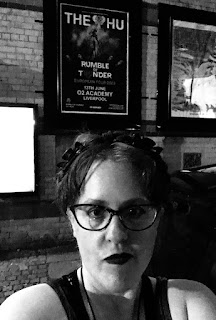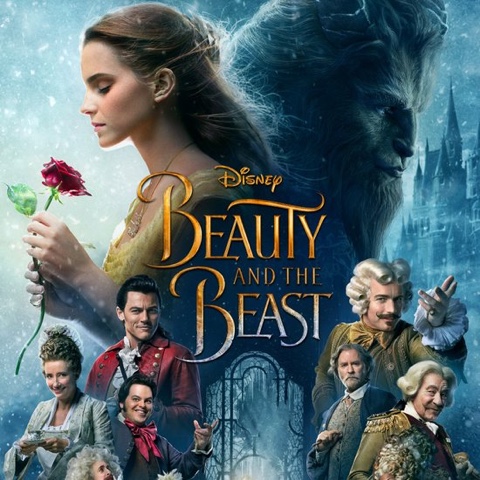The Hu in Liverpool: Culturally Appropriate
 |
| The Hu onstage at Liverpool’s O2 Academy |
I’ll admit that things have not been easy for me since my last blog. There’s a lot of (understandable) hurt and anger out there when it comes to cultural issues. And I’m not emotionally robust enough to take it.
Which is why it was so restorative this week to finally see one of my favourite bands - The Hu - live onstage in Liverpool. It was my first time at a “proper” rock concert, and my first time in Liverpool, so definitely one for the bucket list.
 |
| Jaya and Gala fronting the band |
For those who don’t know them, The Hu are a Mongolian folk-rock band of eight musicians, who combine traditional Mongolian throat singing and instruments such as the Morin Khuur (pictured above, played by Gala) with metal beats and guitars. (It’s called Hunnu Rock). They sing entirely in Mongolian, and the lyrics are mainly about aspects of traditional Mongolian culture, respecting the ancestors and nature. They say their mission is to unite people through music, to give people inner strength, and to be good ambassadors for their country. They always perform with the Black Totem on stage, which represents their ancestors, to whom they pray for strength before each concert. In 2022, they were made UNESCO Artists for Peace.
What was great about the night (apart from the music and the amazing performance the lads gave) was how good it made me feel about intercultural exchange. The warm-up band was an Irish folk-rock group, Tau and the Drones of Praise, who described The Hu as kindred spirits. They were doing a very similar thing to The Hu, connecting with ancient Irish ancestry and culture. I felt happy to be wearing my Celtic cross! In the middle of the front row of the audience were two guys who were wearing what looked like full-on Native American ceremonial dress. I presume they had the right to wear it. It was a great moment when one of them gave Jaya a feather, and he put it in his hair.
And that’s what was so good. Yes, the audience was predominantly white (although with different languages). But there was a mixture of ethnicities as well. And we could all celebrate the history and traditions of our own ancestral lands, appreciate and respect those of other people, and enjoy it! I have to say, I felt surprised and touched that the lads in the band had learnt a few phrases of English to speak to us. It felt like a courtesy to us, which they didn’t have to do, but they did, because that’s the kind of guys they are. Not because it’s compulsory for everyone to speak English. On the contrary, we were all attempting to sing along in Mongolian. And that’s how it should be.
 |
| Me outside the venue with the poster in the background |
The Mongols also had an empire once. Only second in size to the British, and actually the largest contiguous land empire. Many of The Hu’s songs celebrate Chingiss Khaan (Genghis Khan) and his legacy; where the West tends to view him as a ruthless killer, Mongolians celebrate him as the father of the nation. With massive statues. Of course, The Hu are not advocating policies of conquest and mass slaughter. Their lyrics celebrate virtues of courage, loyalty and dignity. It’s about preserving the language, land and livestock of the Mongol people. Their cultural inheritance. Their traditional nomadic lifestyle. Their connection to nature.
As a British person, this makes me wonder: Is it OK to celebrate your empire when enough centuries have passed since its demise? When the intervening centuries have seen you conquered and controlled by subsequent world powers, and you are now a global minority? Will there come a time in history when there’s no trace of shame in being British, and we don’t have to cringe at our massive statues of Queen Victoria? I suspect that before that can happen, we will have to find ourselves in the cultural minority for some time.
 |
| Channeling my inner Blackbeard in the ship-themed Liner hotel |
Which brings me back to Tuesday night in Liverpool, and a room of almost exclusively, if not all, non-Mongolians, attempting to sing along with Yuve Yuve Yu and Bii Biyelgee, and loving it. The Hu were giving Mongolian music and culture as a gift to us, and we were grateful. I could hardly believe - after watching them on YouTube all through lockdown - that they’d come all the way from Mongolia to perform for us. On our little island. What an honour!
And yet I was equally happy to celebrate the heritage of the likes of Aidan and Hilda, with that mixture of Celtic and Germanic that makes up British legends and folklore. And my deep connection to the soil and stone of my native Yorkshire. Knowing that those around me were celebrating their own heritage. And it was actually the things we had in common that made those different traditions worth celebrating.
Now, that’s a night out!



Comments
Post a Comment